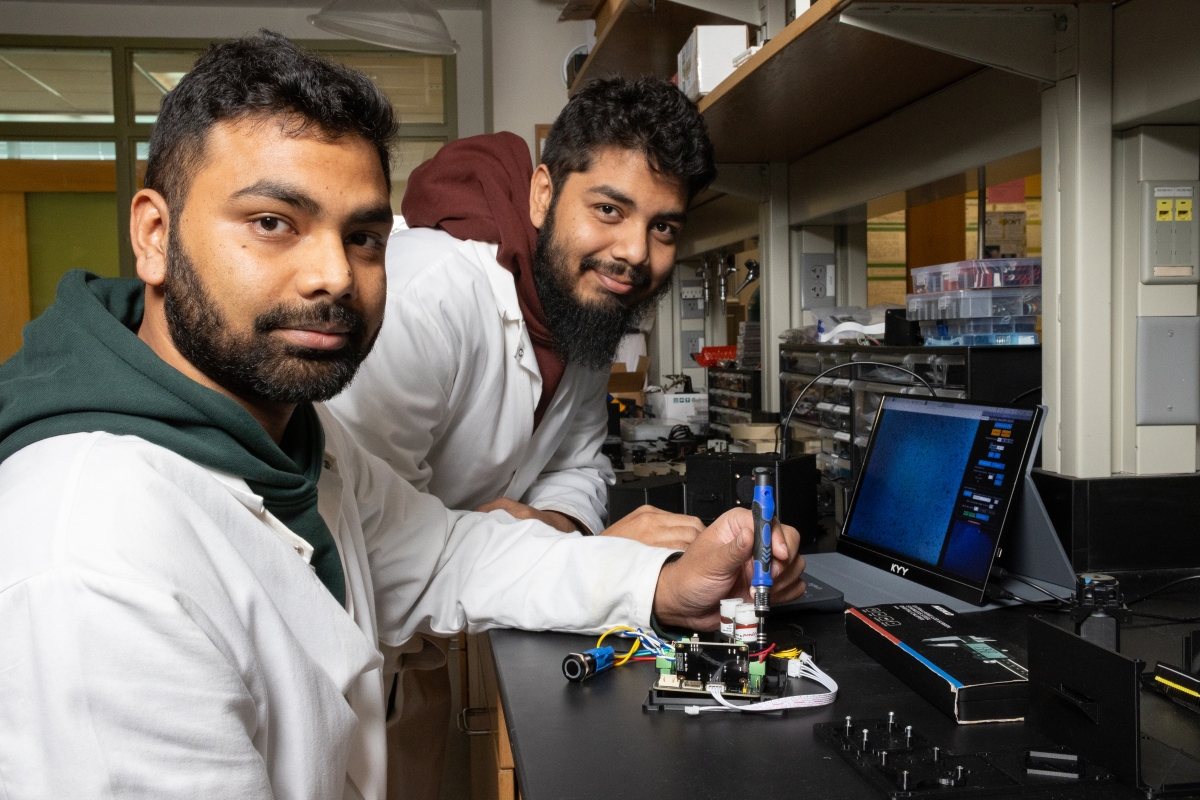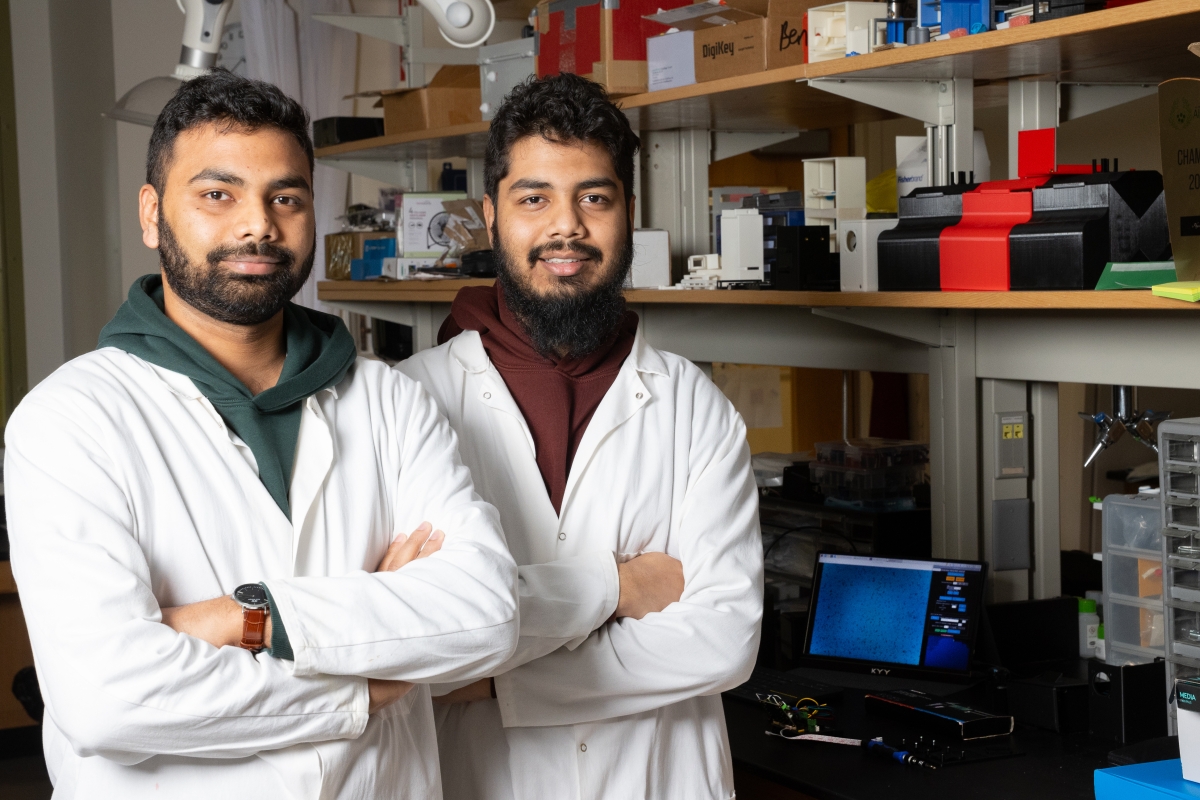
Farhan Khan (left) and Farshid Khan (right) in the lab of Associate Professor Ameet Pinto.
Environmental Engineering graduate students Farhan Khan and Farshid Khan are passionate about providing access to clean water.
They have a lot in common—starting with the fact that they are brothers. Farhan Khan came to Georgia Tech from Bangladesh to begin his Ph.D. studies in 2021. Farshid Khan followed in 2024, beginning his first semester assisting a doctoral student in the very same lab as his older brother.
“Georgia Tech undoubtedly has one of the best programs in this field,” Farshid Khan said. “Also because of the fact that my brother is here, when I got the admission offer, it was the perfect place to come.”
Their journey to Georgia Tech is deeply rooted in their experience growing up in Bangladesh.
“One of the major problems in Bangladesh is textile effluent pollution,” Farshid Khan said. “It is one of the largest textile exporters in the world. But the problem with the textile industry is they do not treat the water well. All of their effluents come into our rivers and they are highly polluted.
“I always wanted to work on that, and it is still my plan after going back to Bangladesh to work on that.”
Farhan Khan said his motivation was similar. He became interested in wastewater treatment as an undergraduate student. While working with a reactor, he needed to monitor the system in multiple stages and began thinking of developing an automatic process.
As a graduate student, he’s shifted his focus from wastewater treatment to monitoring. For his Ph.D. thesis, he is developing an automatic flow imaging microscope to make water monitoring technology more affordable and widely available.
Many water utilities monitor their water source by manually gathering samples and testing them to look at microorganisms, toxins, contaminants, and other factors.
The goal of Farhan Khan’s flow imaging device is to automate the process so that the device will take in a water sample by itself, take images of microorganisms, and then quantify and identify the different types of microorganisms within the water sample.
“We are trying to develop a low-cost technology to monitor the environmental system. My vision, my goal was always to make technology more accessible to people,” Farhan Khan said. “That’s what I want to pursue after my graduation so I can have an impact on a larger population.”

Farhan Khan is developing the technology in the lab of his advisor, Carlton S. Wilder Early Career Professor Ameet Pinto.
Pinto said that Farhan Khan has become a very sophisticated researcher during his Ph.D. studies.
“He has really grown as a researcher and as an engineer at the interface of computer science and environmental engineering, and there are not a lot of people in that space,” Pinto said.
Farshid Khan also spent time in Pinto’s lab when he began his master’s studies at Georgia Tech in the fall of 2024.
“My lab does a lot of microbiology and computational biology, and typically students that come in with an environmental engineering
or civil engineering undergraduate degree don't have the necessary skill set,” Pinto said. “So when someone comes in and is interested in doing master’s level research, they need an extensive amount of training. So Farshid has learned a few different chemical techniques in the lab, working with one of my doctoral students.”
Farshid Khan is now continuing his studies with his advisor, Carlton S. Wilder Early Career Professor Xing Xie.
While Farshid Khan followed in his older brother’s footsteps, Farhan Khan isn’t the first engineer in the family.
“We have an older sister and she is a computer engineer. So she started this trend and we all followed,” Farshid Khan said.
Outside of the lab, Farhan Khan has enjoyed getting involved in entrepreneurial activities.
In 2022, he was part of a team that won the Higginbotham Entrepreneurship Award at the School of Civil and Environmental Engineering’s second annual Entrepreneurial Impact Competition.
Farhan Khan, along with fellow Ph.D. student Benjamin Gincley, won the competition with PhycoSight, a device to monitor water quality and combat the rapid proliferation of toxin-producing algae.
In 2023, Khan and Gincley were part of a team that was recognized as one of the top four finalists at the AlgaePrize Competition, hosted by the U.S. Department of Energy’s Bioenergy Technologies Office.
“My experience was very fulfilling in this department. Beside my academics and research, I was able to get involved in a lot of things,” Farhan Khan said. “All of these opportunities with the excellent academic and research programs here, it feels like the best place for me to be. And I also wanted my brother to be part of it.”
